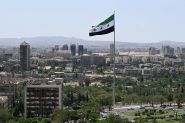
U.S. Strike in Venezuela a Blow to Hezbollah’s Revival Efforts
Ian Talley 07/01 15:30

Ian Talley 07/01 15:30

This is Beirut 07/01 15:30

This is Beirut 07/01 14:35

This is Beirut 06/01 17:20

This is Beirut 06/01 09:30

Salam El Zaatari 08/01 23:25

This is Beirut 08/01 13:05

This is Beirut 08/01 08:30

This is Beirut 08/01 08:30

This is Beirut 08/01 08:25
Hala Abdallah 06/01 21:35
Hala Abdallah 2025-12-30 17:00
Maria Chami 2025-12-30 13:00
Rayan Chami 2025-12-26 17:10

This is Beirut 2025-12-21 15:05

This is Beirut 2025-12-21 12:05

Eleonore Stephan for Huna Lubnan 2025-12-21 09:05

This is Beirut 2025-12-20 18:05

This is Beirut 2025-12-20 16:05

This is Beirut 08/01 17:30

This is Beirut 07/01 20:45

This is Beirut 06/01 17:00

This is Beirut 05/01 12:50

This is Beirut 02/01 21:05

Makram Haddad 2025-12-19 08:40

Makram Haddad 2025-12-18 08:50

Makram Haddad 2025-12-17 11:30

Makram Haddad 2025-12-16 09:30

Makram Haddad 2025-12-12 11:10

Bélinda Ibrahim 2025-12-17 11:00

Makram Haddad 2025-12-17 08:50

Bélinda Ibrahim 2025-12-11 10:30

Bélinda Ibrahim 2025-12-10 12:00

Bélinda Ibrahim 2025-12-04 15:05